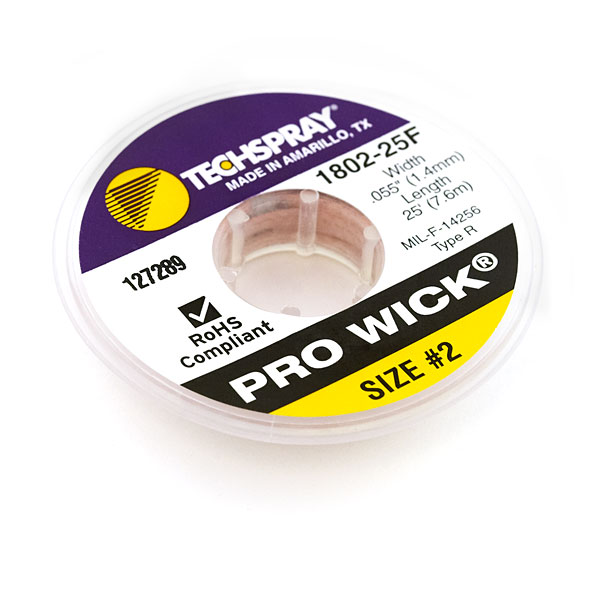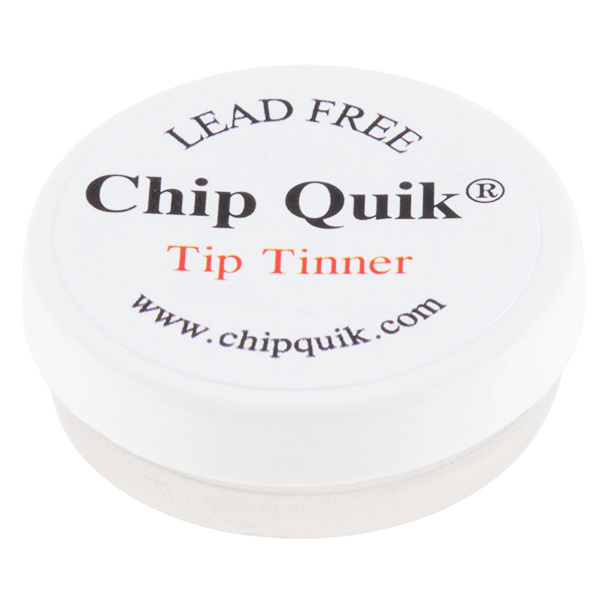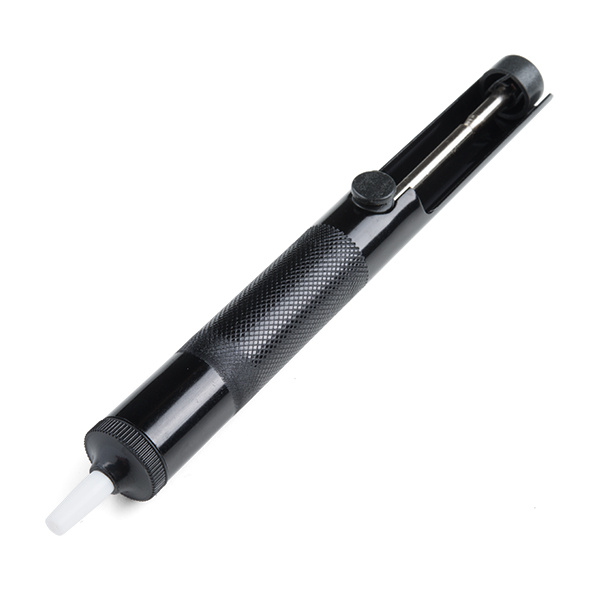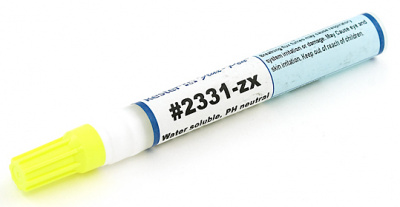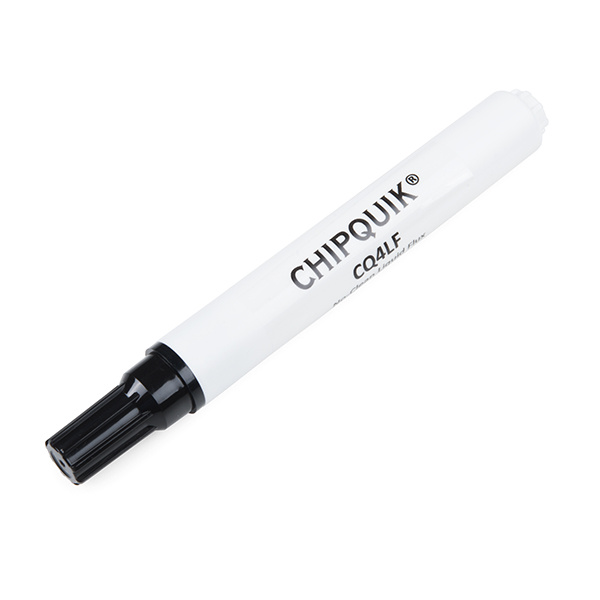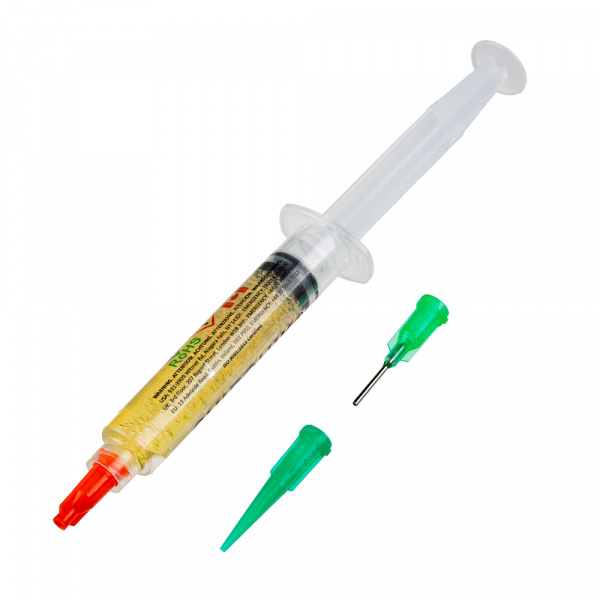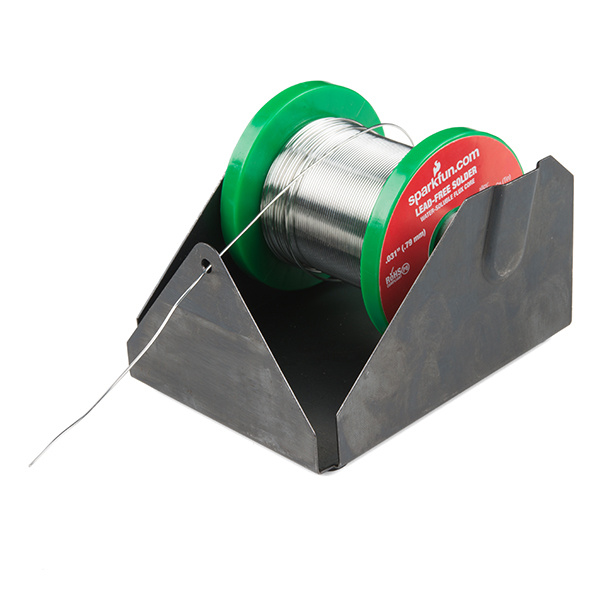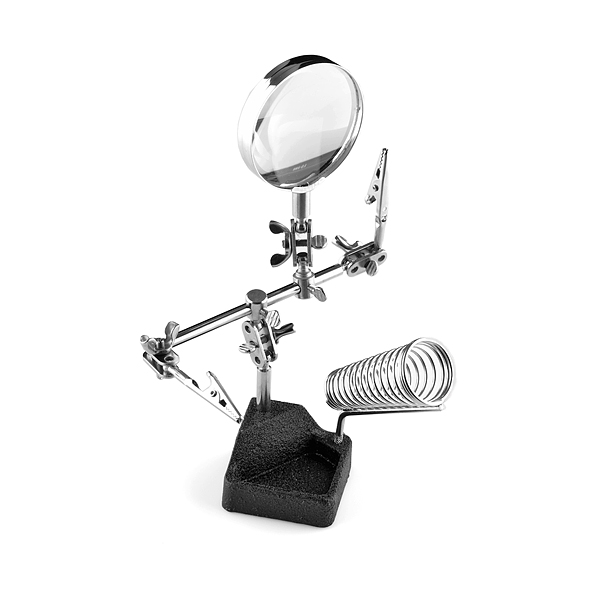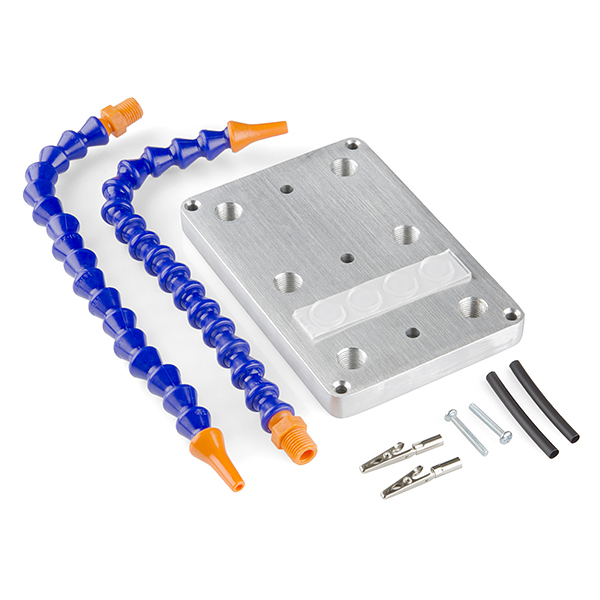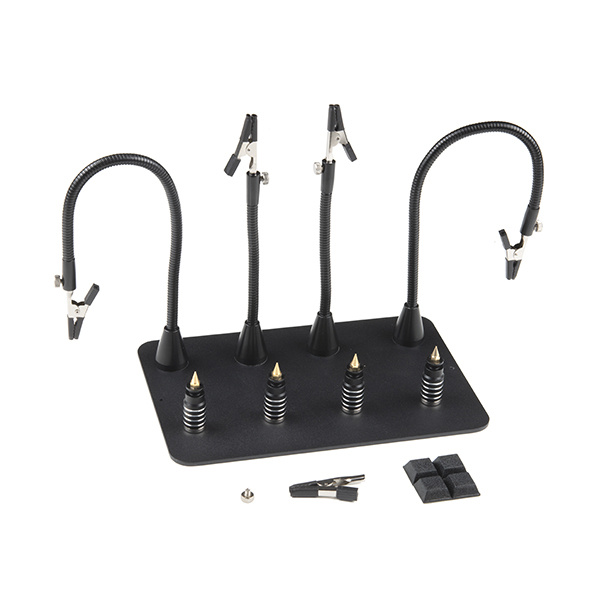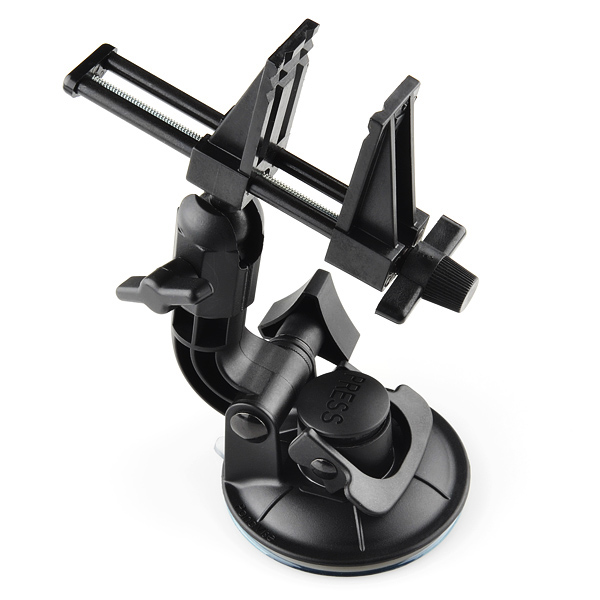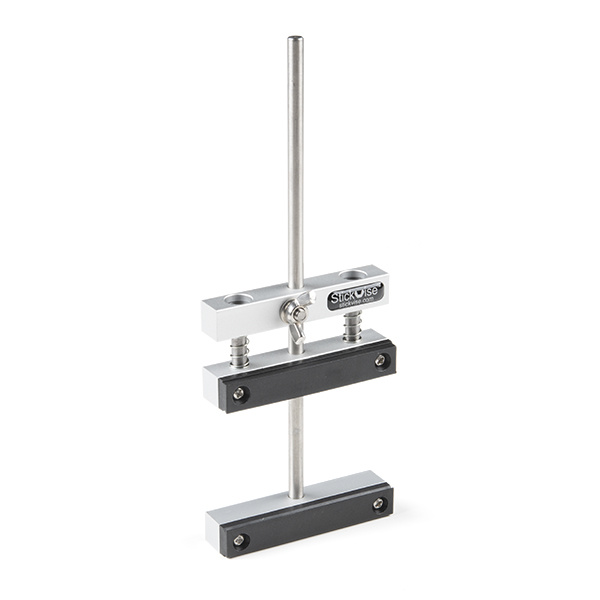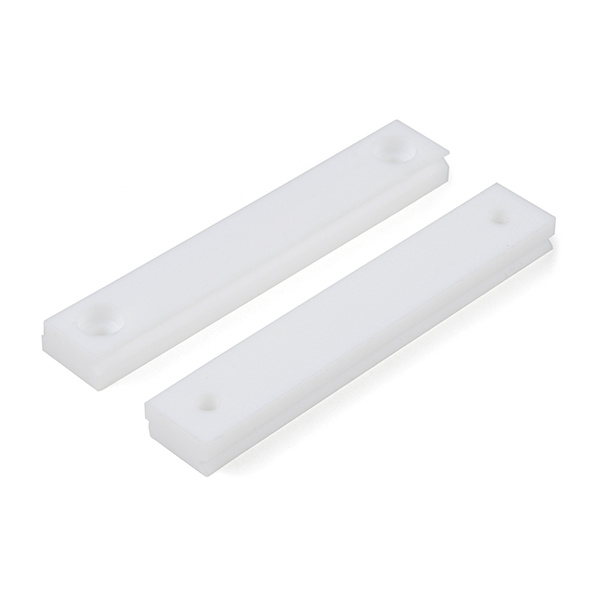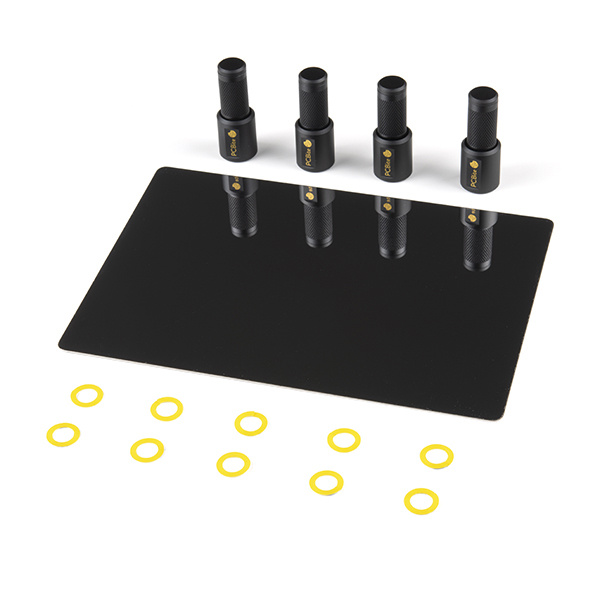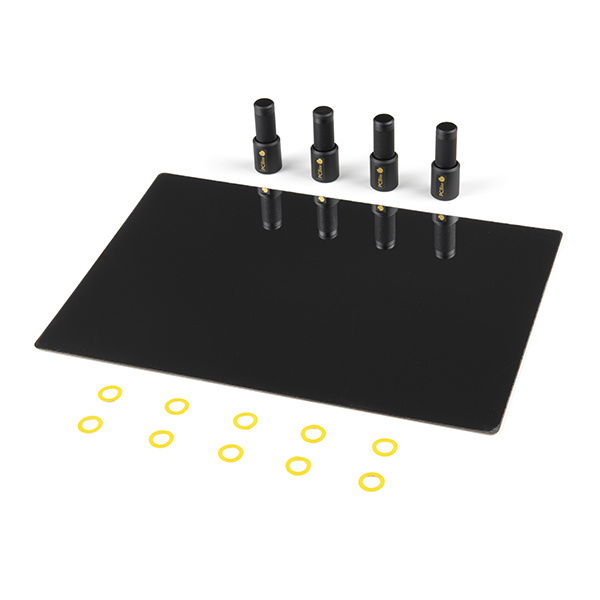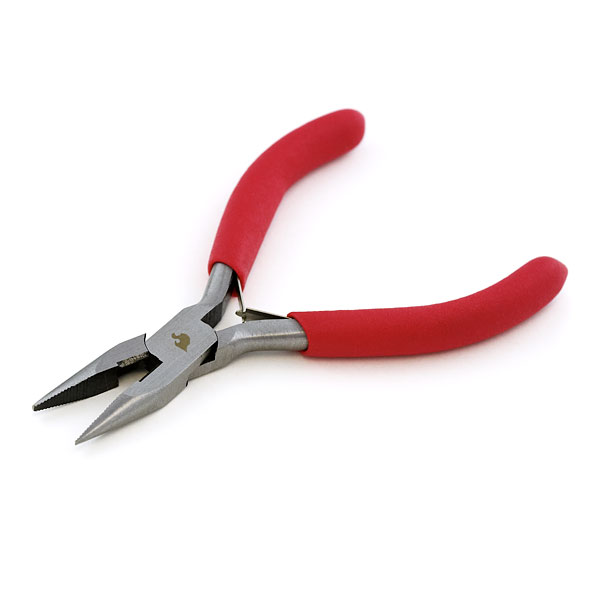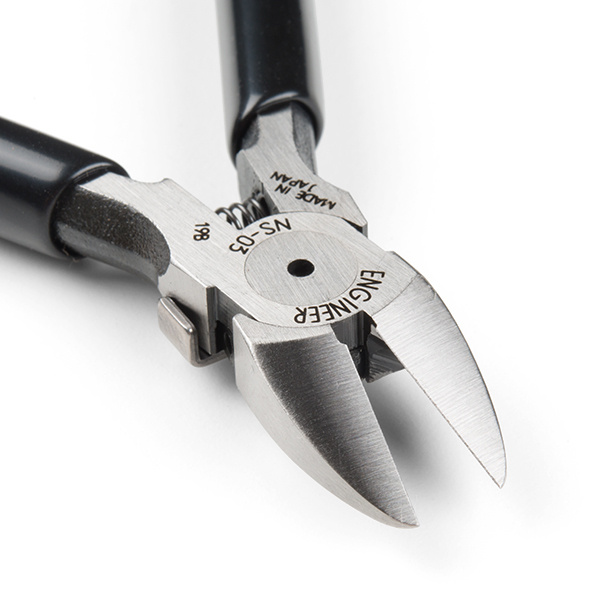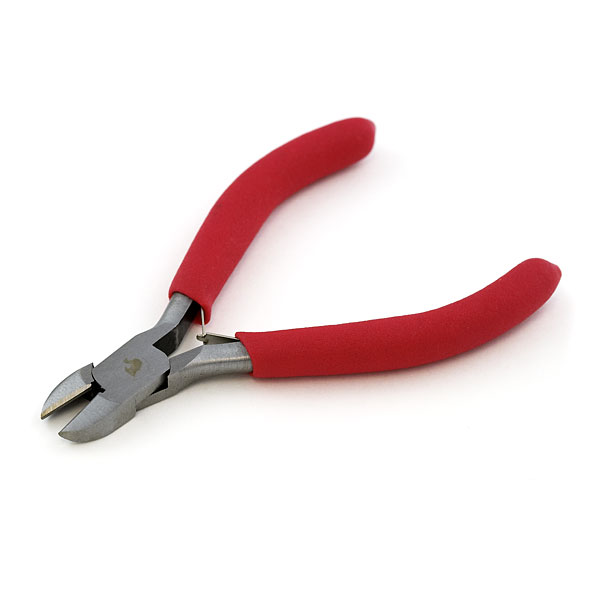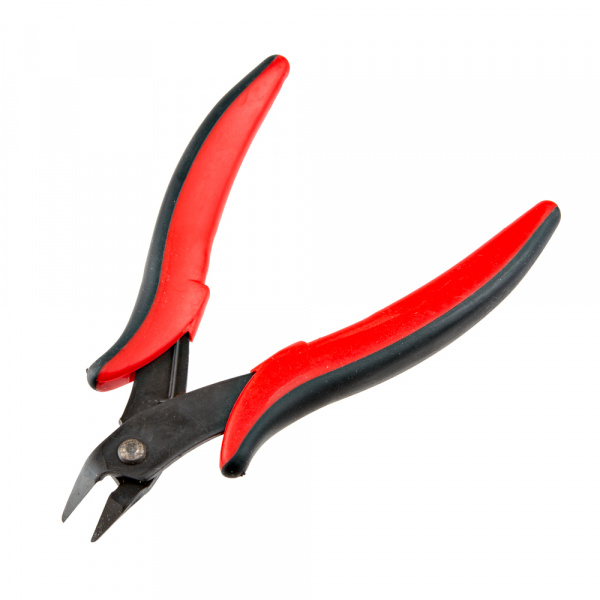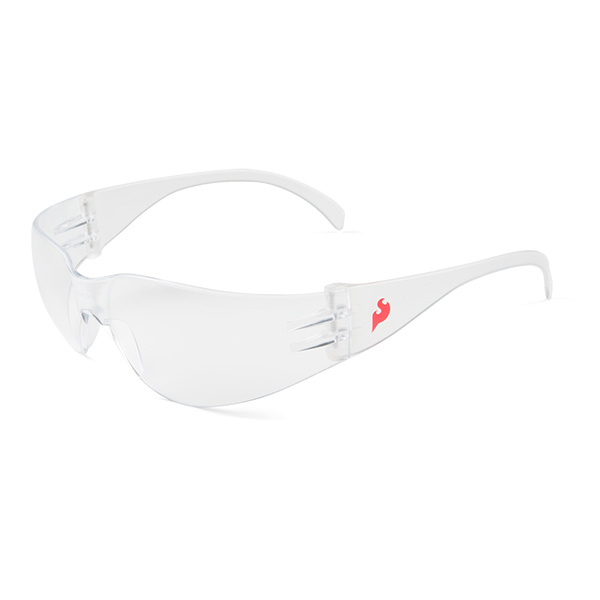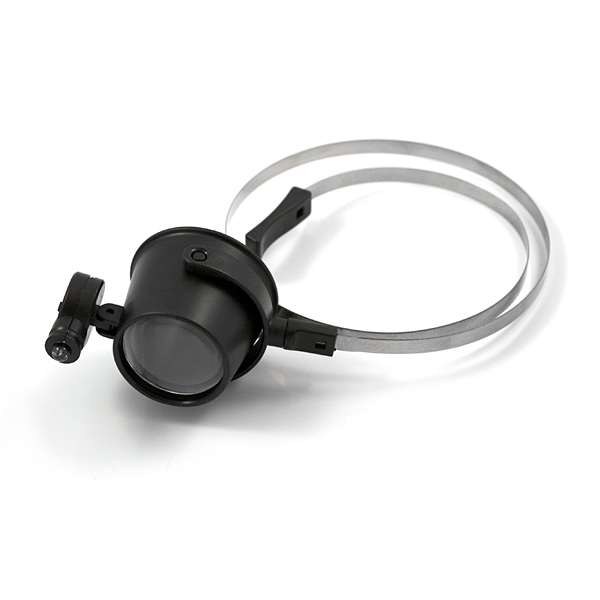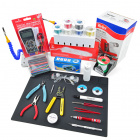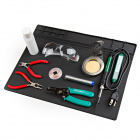How to Solder: Through-Hole Soldering
Contributors:
 Joel_E_B
Joel_E_B
Soldering Accessories
Now that you know the ins and outs of a soldering iron, it's time to discuss the other tools that will aid you on your soldering adventure.
Solder Wick
- Solder Wick - The eraser to soldering's pencil. When dealing with issues such as jumpers or the removal of parts (desoldering), solder wick comes in very handy. Solder wick -- aka desoldering braid -- is comprised of thin copper wire braided together. Solder is soaked (wicked) up by the copper allowing you to "erase" extra globs of solder.
Solder Wick #2 25ft. - TechSpray
TOL-0877514782
Tip Tinner
- Tip Tinner - A chemical paste used to clean the tip of your soldering iron. It is composed of a mild acid that helps remove baked on residue (like when you accidentally melt your tip on a component) and helps prevent oxidation (the nasty black stuff) that accumulates on your soldering tip when not in use.
Solder Vacuum (Solder Sucker)
- Solder Vacuum (Solder Sucker) - A great tool for removing solder left behind in through-holes when desoldering components. We'll go over how to use this tool a little later in the tutorial.
Flux
- Water Soluble Flux - Flux is a chemical agent that aids in the flowing of lead-free solder. Flux pens allow you to dab stubborn components with liquid flux to create better looking solder joints. It is recommended to clean and remove any remaining water soluble flux residue on the board.
- No Clean Flux - Flux is another chemical agent that aids in the flowing of lead-free solder. Flux pens allow you to dab stubborn components with liquid flux to create better looking solder joints. Cleaning and flux removal is not required. For those interested in removing the flux residue, isopropyl alcohol (IPA) is required. Flux can also be applied through a syringe or precision tip application bottle.
Silicone Soldering Mat
- Insulated Silicone Soldering Mat - Protect your desktop and keep it clean with a silicone soldering mat.
Solder Dispenser
- Solder-Mate Solder Dispenser - To prevent your spool from rolling away and dispense your solder.
Other Suggested Tools
The following tools aren't necessary, but they sure do make soldering easier at times.
Third Hand (Third Arm)
- Third Hand (Third Arm) - Third hands are great for holding PCBs, wires, and components in place while you solder. The articulation depends on how the third arm is manufactured. Some third arms will have a wider range of motion to hold the PCB up than other third arms.
Panavise Jr.
- Panavise Jr. - Vacuum Base - Another great tool for holding PCBs, wires, and components in place while you solder and reworking your board.
Panavise Jr. - Vacuum Base
TOL-10410Stickvise PCB Vise
- Stickvise PCB Vise - This low profile PCB vise is ideal for holding a PCB flat while soldering, testing, and wiring on a table. They also fit easily under a microscope to keep the PCB consistently in focus. Worried about accidentally melting your standard Nylon jaws with the Stickvise? You may want to upgrade by picking up a pair of the high temperature PTFE jaws. They will not melt or become damaged by incidental contact with a soldering iron.
Stickvise High Temperature PTFE Jaws
TOL-17594PCBite Kit
- PCBite Kit (Small and Large Base Plates) - The PCBite Kits include PCB holders with stainless spring jaws that clamp to the edge of PCBs with varying sizes and shapes. Yellow insulated washers are included to protect the circuit boards. On the bottom of each PCB holder is a powerful magnet that allow the holders that stick to the stainless base plate. While this "third hand" does not have flexible arms, it is ideal for clamping PCBs securely for soldering, desoldering, or rework on a flat table. The PCBite Kit is also portable and is not awkwardly shaped like some third hands. Additionally, there are accessories available to easily probe a circuit board.
PCBite Kit (Small Base Plate)
TOL-19720PCBite Kit (Large Base Plate)
TOL-19721Needle Nose Pliers
- Needle Nose Pliers - Mini pliers are a must have for any hobbyist or electrical engineer. Crucial for inserting devices into breadboards and bending pins.
Diagonal Cutters
- Diagonal Cutters - Cutters allow you to trim the legs of components you solder to the PCB. They can also be used to grip, grap, and pry connectors or other various cables such as a LiPo battery's 2-pin JST connector.
Electronic Snippers
TOL-10447Flush Cutters
- Flush Cutters - Giving you a way to cut leads very cleanly and close to the solder joint. Diagonal cutters are good, but if you really need to get up close and personal, flush cutters are the way to go.
Safety Glasses
- Safety Glasses - Just in case any clipped leads or molten solder fly toward your eyes. We use these for eye protection in our production lines at SparkFun HQ!
Monocle
- Monocle - Useful for inspecting your solder joints and SMD components on a PCB. The LED provides sufficient light at the working distance.
Bundled Kits! Check out the following tool kits with some of the soldering irons and accessories listed earlier!
Retired
Retired
